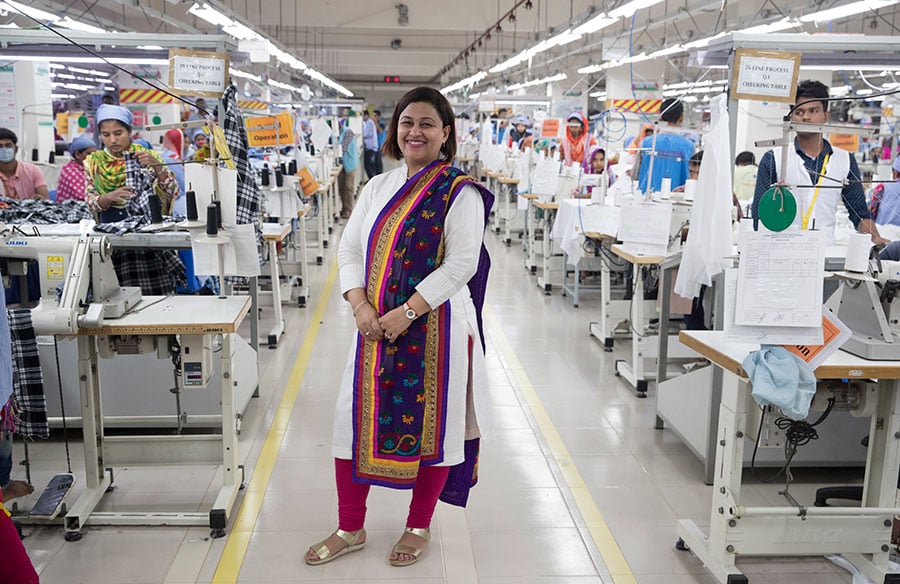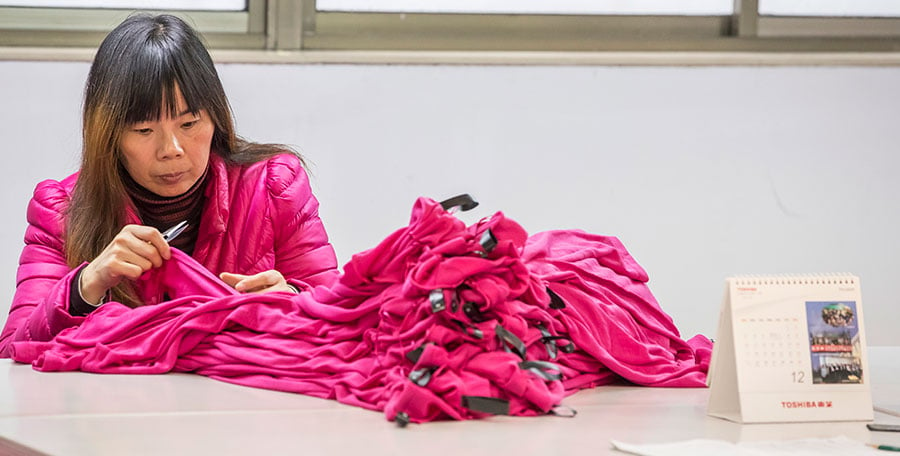A responsibility to protect the welfare of workers and environmental standards
At The Warehouse Group, we recognise that we have a responsibility to protect the welfare of workers and environmental standards in our supply chain. New Zealanders want to know that the overseas workers who make their products are not mistreated.

Tania Benyon, CEO Sourcing says The Warehouse Group takes ethical sourcing very seriously.“We’re committed to operating responsibly – not only in New Zealand but in our offshore supplier manufacturing sites as well.
“Our ethical sourcing programme is guided by the United Nations Guiding Principles on Business and Human Rights, and we have been actively assessing and monitoring working conditions in our supply chain since 2004.”
There are around 500,000 production workers involved in The Warehouse’s supply chain annually, and the responsibility is significant.
The Warehouse has an ethical sourcing policy, which all suppliers are required to meet and has been in place for fifteen years.“Our thresholds are high.For example, last year we declined 42% of applicants, based on our criteria.”
The Warehouse Group has a comprehensive auditing programme for private-label factories, to make sure that suppliers are complying with their obligations under the policy.
“In the past two years, we’ve undertaken 395 on-the-ground, in-factory audits.A key benefit of our programme is that where there are gaps, we work with the factory to help them reach our standards.”However, issues such as child labour and bonded labour are “zero tolerance” issues, she says.

Ethical Sourcing at The Warehouse Group: Fast Facts
- All The Warehouse Group suppliers are required to comply with our Ethical Sourcing Policy. We insist on: legal contracts for all workers, fair wages, safe and ethical conditions for all workers, and no child or bonded labour.
- Our ethical sourcing thresholds are high.For example, last year we declined 42% of applicants.
- We regularly assess factories that supply our private-label goods.In the past two years, we’ve undertaken 395 on-the-ground, in-factory audits.
There are numerous challenges in sourcing globally and it is a complex global industry where approaches to work are very different to those in New Zealand.“Local laws and customs differ to Western expectations, and in some cases we have limited visibility of subsidiary layers of the supply chain.However, we are working work closely with suppliers every day to ensure that our standards are met and to drive continuous improvement.”
Tania Benyon says that The Warehouse Group believes that collaboration with suppliers will create the most effective change for workers. “By making financial contributions to joint efforts to drive social and environmental progress in developing country supply chains we can really help make a difference.For example, enhancing worker welfare through initiatives like Nirapon and HER projects in Bangladesh, and the Responsible Workplace and Recruitment programme in Malaysia.”
More information about The Warehouse’ ethical sourcing programme can be found in our Annual Report for 2018 or The Warehouse Ethical Sourcing Report.




